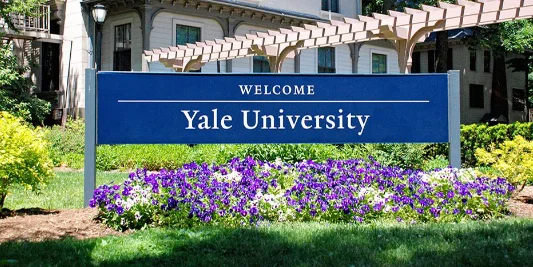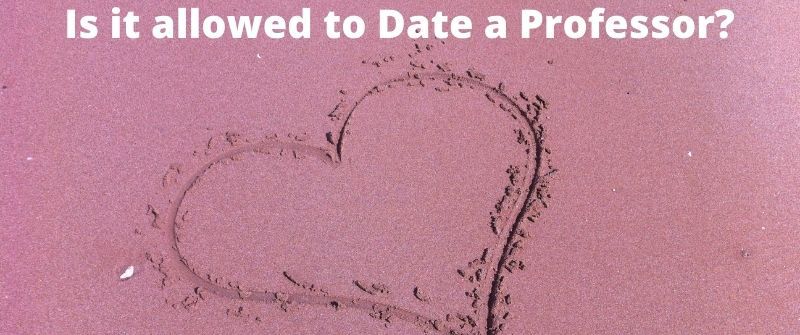Have you ever thought of the many cases of students dating their lectures in public and private universities? Well, in modern educational institutions, the practice is not welcome despite the reported cases.
While it is a matter of two adults being involved in consensual relationships, universities have a responsibility to protect their students. With that view, the question comes of whether lecturers, professors, or faculty staff can date students.
A professor should not date a student because it is not allowed or encouraged in most universities. Most faculties and academic staff are barred from having sexual relationships with students of the same institution.
However, few cases are reported where professors date students and end up with responsible relationships.
Several universities prohibit a professor from dating a student because some of them use it as a weapon to harass the same students. Additionally, other institutions of higher learning banned the practice, citing several consequences that come out of such relationships.
Yes, a professor can only date a student in special circumstances. First off, it could be that the student is in a different university while the professor is teaching in a different institution. As such, there could be no conflict of interest since the professor will not be using his position as bargaining power.
Policies Adopted by Different Universities on Professor-Student Dating
Due to public outcry, many colleges and universities set up committees to come up with a code of conduct on how a student and a professor should behave. Several institutions outlined their policies on how to operate, as discussed in the examples below.
Yale University’s Dating Policy
Yale University is among the institutions in the US that prohibit lecturer-student relationships. A professor should only teach, supervise, and advise a student.

A sexual relationship may jeopardize educational integrity, leading to a conflict of interest. Such actions may impair the learning environment for other students.
The policy states that a lecturer should avoid having a consensual relationship with students for whom he/or she has direct supervisory responsibility.
Precisely, a lecturer should not supervise a student with whom they have a sexual relationship.
Additionally, any student or lecturer who does not understand the university policy concerning relationships should consult with the departmental chair or dean.
Members or students have a right to complain if there is an abuse of the policy within the University. Just like other policies guiding teachers dating students, the students are well protected by this policy, and gives them the right to report.
Suppose the parties are violating the policy, the victims may face disciplinary action. Gross misconduct can lead to severe penalties, including termination.
Massachusetts Institute of Technology (MIT)
MIT stands out in preventing the consequences that may arise when there is a romantic relationship between the professor and a student.
The institution prohibits academic staff from consensual relationships with students since they result in favoritism, abuse of authority, and conflict of interest.
Due to the adverse effects of such relationships, MIT prohibits faculty members from having sexual or romantic relationships with students.
Furthermore, other employees who have broad influence over learners are also under restriction from having a sexual or romantic relationship with such students.
Failure to adhere to such a policy may lead to disciplinary action, leading to termination of contact with the institution.
The affected person must report such actions to the relevant authorities within the institution for further investigation and possible actions.
University of Michigan’s Relationships Policy
The University of Michigan put measures to curb any sexual and romantic scandals that arise among the student and faculty members.

The rules prohibit lectures and members of the faculty from having a sexual, amorous, or romantic relationship.
Additionally, the rules do not allow lecturers to have a love relationship with students in the same academic discipline.
The University upholds such a code of conduct to promote an environment of trust, civility, and openness. Such allows the students to reach their full potential without coercion or using proxies.
Those lecturers and students who violate such a policy may face disciplinary measures or a possible separation from the institution.
Harvard University’s Consensual Relationship Policy
Harvard University is a reputable institution that has an excellent history of upholding academic excellence. The institution banned professors from engaging in romantic and sexual relationships with students.
The University acted in that wisdom to protect the interest of both students and their lectures. There were cases when students reported sexual harassment, leading to power dynamics.
In response, the administration ended such cases by setting up strict policies to handle such challenges.
In 2013, the institution revised rules to ensure that such stringent measures would discourage such relationships within the institution.
University of Florida
The institution refrains the lectures and students in the faculty from forming romantic and sexual relationships due to the negative implications of the coursework.

The policies banned any connection between the undergraduate and faculty members and departments or the academic discipline.
However, any existing romantic or sexual relationship between students and lecturers should not cease to avoid favoritism.
Whenever the faculty member senses such an existing relationship.
He or she should inform the Dean. When one violates such rules, it may lead to several consequences, including dismissals.
The intention of setting up such policies is to protect academic integrity. Previously, such scandals led to abuse of authority and dishonesty in awarding grades to underserved students.
University of California
The University set up a policy that stops the activities and influences that could interfere with a student’s learning consistently.
The approach insulates the lecturer from forming a romantic or sexual relationship with a student by putting in stringent measures.
For instance, a lecturer should not have supervisory or advisory roles on any student he/she might be relating with sexually. Victims in a faculty who are violating such a code of conduct are subject to disciplinary action. The University can invoke its policy if it finds one guilty of violating the set rules.
Any victim of sexual harassment must report the incidents to the department and allow the institution to follow up and take disciplinary action.
Professor-Student Relationship Stories from Cases reported
23 years ago, Yale banned Sex between faculty and its students. The University set up a policy that refrains faculty members from having sexual relations with the students. Such a move came in reaction to a case whereby the assistant math professor faced such a scenario.

The University set up a ten-member committee that came up with recommendations that prohibited lecturers from indulging in such actions.
In response, the administration circulated the policy to all departments before it enforced it in the subsequent semesters.
The committee concluded that when there is a sexual relationship between a lecturer and a student, it is likely to jeopardize the educational process and integrity by creating a conflict of interest.
Furthermore, the policy stated that tutors should refrain from having a sexual relationship with a student with whom they have current or future supervisory control, whether the relationship is consensual or not.
Additionally, the move prohibited tutors from supervising a student with whom they have a sexual relationship. Direct supervision covers examining, teaching, grading, or providing advice on a formal project such as a thesis.
Although the professor refuted the claims of sexual harassment, he had to resign. The Yale Grievances Board reprimanded him and recommended dismissal. A 17-year-old female accused the same professor of sexual harassment. Since then, the policy is still in force.
In April 2018, a Penn professor was reported to be involved in a sexual scandals. The Daily Pennsylvanian paper reported Professor Robert Kurzban having an intimate relationship with an undergraduate female student.
Such actions were in violation of the institution’s policies, which came into force in 1995 after reviewing the guidelines. They included the banning of any sexual relationship between faculty members and undergraduate students.
According to the ten students who spoke to The Daily Pennsylvanian, the relationship between Kurzban and the student sprung in 2017 with a tenured professor.
When The Daily Pennsylvanian reached out to Kurzban for comment, he declined. Later, he sent an email denying such allegations.
Kurzban was the head of the Psychology department, and he mentored undergraduate students regularly. The faculty handbook provides that any sexual relationship between the faculty members and the students can lead to reprimanding, expulsion, or termination of employment.
ISP university administrators bared the professor from teaching in the faculty and stripped him of his title. However, the University did not elaborate if they fully demoted the professor or not.
The law in Pennsylvania does not entirely ban such relationships between a lecturer and a student. However, the staff or the faculty can report such cases to the supervisor.

I am an educational writer and blogger focussing on tech, education, and life improvement.
